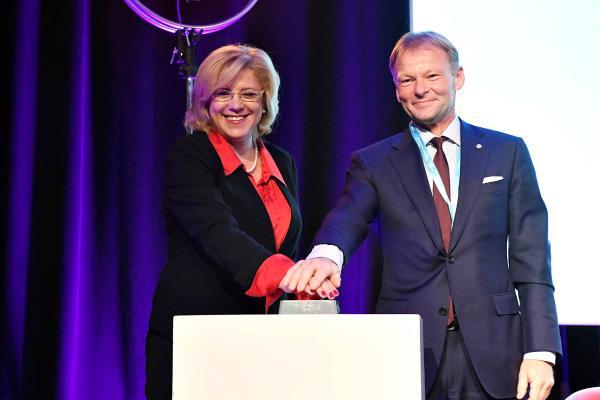
URBIS, for "Urban Investment Support" will help cities plan investments to support their own urban development strategies and get easier access to finance.
Cities face particular challenges when it comes to accessing finance. Individual municipal projects, for example in the fields of social inclusion, urban regeneration or energy efficiency, can be too risky or too small for the market. At the same time, funding for integrated urban programmes can also be difficult to access, because they group several small projects across different sectors. Finally, cities can also face borrowing limits.
URBIS intends to help cities tackle these specific issues. It will help them design, plan and implement their investment strategies and projects, with tailor-made technical and financial advice, also on innovative financing options. The objective is to see solid projects get off the ground in the short to medium-term, for example in the field of urban climate actions.
Launching URBIS today at the 2017 Cities Forum in Rotterdam, Commissioner for Regional Policy Corina Creţu said: "We have ambitious objectives for sustainable urban development under the Urban Agenda for the EU and URBIS will help us reach them. Thanks to this initiative, cities will have the support they need to create new opportunities for their inhabitants."
“Cities are more attractive than ever: in three decades 8 out of 10 Europeans will live in a city,” said Vazil Hudák, European Investment Bank Vice-President responsible for advisory and project support in cities and regions. “Towns, cities and regions need finance as well as advice to become smart, modern, green and innovative, and with the help of our pilot project URBIS we can deliver just that.”
Maroš Šefčovič, the European Commission Vice-President responsible for the Energy Union, said: "Mayors want to take action and make their cities smarter and more sustainable. On our part, URBIS will make it easier for them to access the investments they need to get this done – through tailor-made advice and leveraging existing funds and assets. Urban innovation needs to be unlocked, get enough scale and be replicated across Europe."
URBIS will consist of European Investment Bank (EIB) experts from the institution's different advisory and project services, including EIB staff located across Member States and experts from JASPERS, the independent team specialised in preparing quality EU-funded projects.
Where needed, it would bring on board experts who can explain how to blend EU funds with national and local promotional banks financing and with innovative financing opportunities. For example, such opportunities include impact investments, i.e. investments made into companies or funds with the aim to trigger social and environmental impact alongside a financial return.
Cities of all sizes in all Member States can apply for URBIS' support via a web page hosted on the European Investment and Advisory Hub.
URBIS will help:
-
Improve a city's investment strategy by giving advice in strategic planning, prioritising and optimising of investment programmes and projects.
-
Bring projects and investment programmes to a bankable stage, for example by providing analysis on demand or support in financial structuring and by reviewing draft grant applications.
-
Explore opportunities for financing under the European Fund for Strategic Investments (EFSI), Cohesion Policy funds — under which over €100 billion is being invested in urban areas over 2014-2020 — or both combined.
-
Support the preparation work for investment platforms and facilities combining funds, liaise with financial intermediaries and set up implementation arrangements for these facilities.
-
Develop financing approaches aiming at alleviating the burden on municipal debt and at helping municipal companies and private urban service providers access funding.
Next steps:
URBIS will start by using the existing advisory and project services of the European Investment Bank and will focus on a selected number of assignments.
This initial work, as well as the cities' demand for URBIS' support, will be assessed by the EIB and the Commission in the second half of 2018. If URBIS proves successful, additional resources could be considered, with a view of continuing, improving and scaling-up the initiative.
URBIS' work and analysis will feed into the ongoing reflection on the next budget framework after 2020, especially as regards the access and management of Cohesion Policy funds by cities.
For more information:
EIB support to the Urban Agenda
Urban Agenda for the EU: one-stop-shop for cities on the European Commission website
The Juncker Plan

